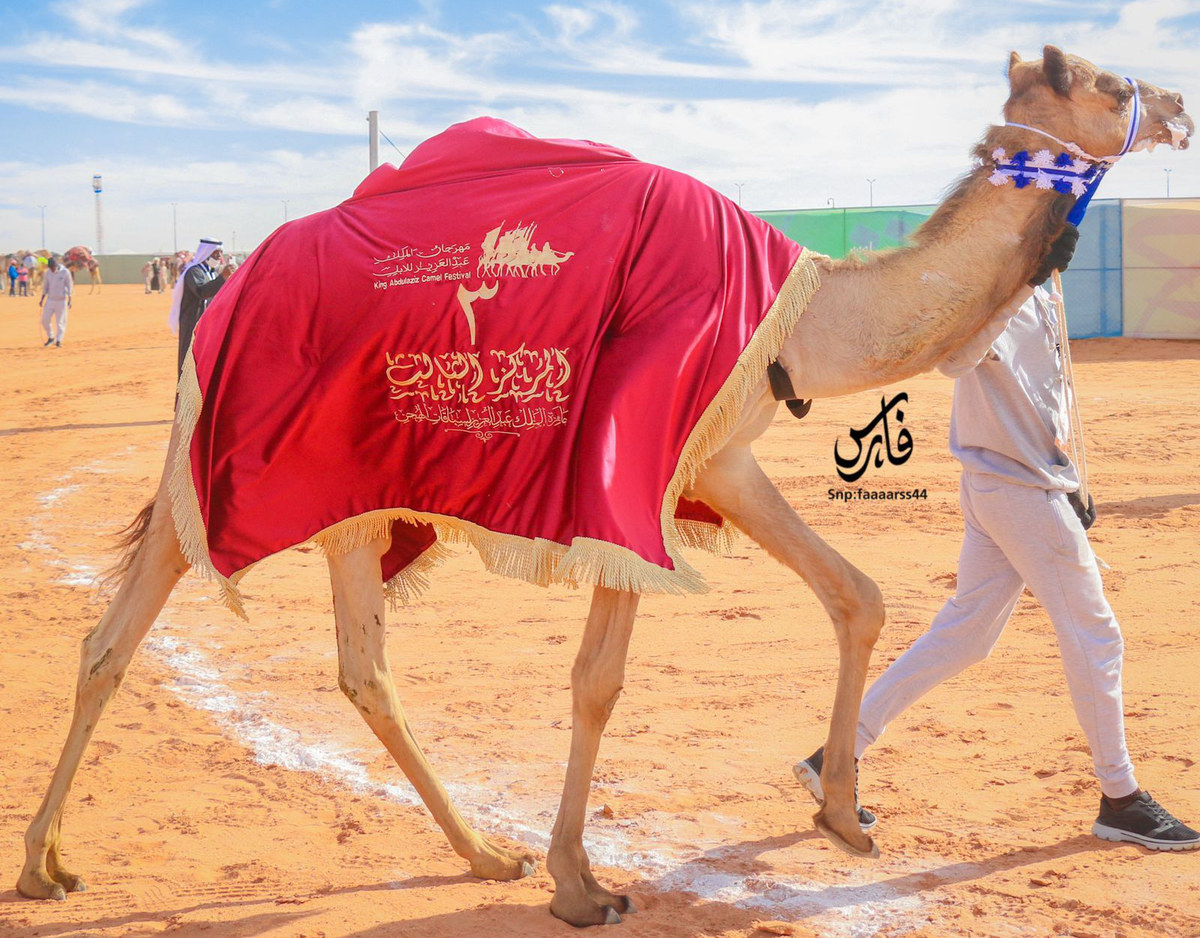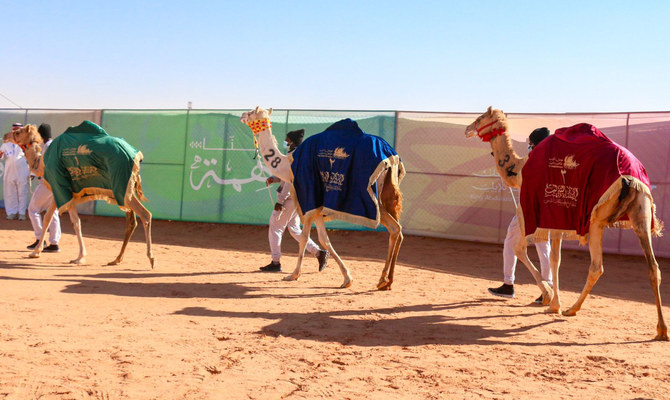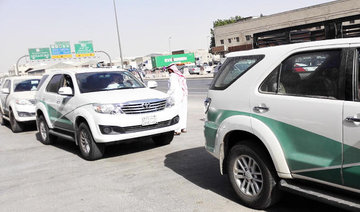RIYADH: Female camel owners last week had the chance, for the first time ever, to showcase their animals in a camel beauty contest at the annual King Abdulaziz Camel Festival in Saudi Arabia. But they were not the only women to play a prominent role at the event; others contributed by providing the impressive accessories that helped the camels catch the eyes of the judges.
Noura Al-Ghannam, for example, is the owner of Safayef, a company that specializes in making customized camel capes, covers, necklaces and other accessories.
“I started my business two years ago, in 2019, but a year before that we studied the local market and the problems in traditional products and how they are limited,” she told Arab News.
She came to the conclusion that traditional capes for camels were very plain and simple and lacked style, so she decided to brighten them up with the addition of colorful embroidery and by offering a variety of fabrics. The name of the business, Safayef, refers to the decoration made from woolen threads that appears on the camel accessories.
“I realized that we need different fabrics for camel capes that are suitable for winter and summer, and some are only suitable for formal occasions,” Al-Ghannam said. “We also work on necklaces and medals.”

Each colorful, embroidered cape is customized and meticulously stitched as per the precise measurement of the camel to ensure a perfect fit. (Supplied)
Sewing has been one of her passions since a very young age, she added.
“I loved embroidering and adding accessories on fabrics, and while most designers tend to design traditional clothes, I wanted to differ from them and decorate camels, as I have an interest in them,” she said.
One of the challenges she faced in setting up her business was the bespoke nature of the accessories she provides, which require precise measurements to ensure they perfectly fit the camel they are made for.
“One of the reasons why we don’t have a retail store is because these clothes are specially tailored and customized for one camel at a time,” Al-Ghannam said. “When we get an order we have to take the measurements of the camel so it can fit the clothes perfectly.

Each colorful, embroidered cape is customized and meticulously stitched as per the precise measurement of the camel to ensure a perfect fit. (Supplied)
“One of the biggest challenges that we had was taking the measurements for a camel. However, after a year of working with camels, we overcame the problem and now it has become easier to do so.”
Al-Ghannam said that she wants to expand her business to all Gulf countries and aspires to it becoming the leading specialist brand for camel accessories.
Her clients include camel owners and the organizers of camel festivals, and she revealed that she also receives many requests for horse accessories.
“I know many horse owners want accessories for their horses,” she said. “However, Safayef is a business specializing in camel accessories only — and in any business, it is very important to focus on what you do best.”
Al-Ghannam said that when she started her business she contacted the Kingdom’s Camel Club and explained her business plans. They welcomed her with open arms, she added, and this year she participated in the King Abdulaziz Camel Festival for the first time by providing flags, necklaces, scarves and embroidered covers.
Safayef has also supplied camel capes and team uniforms to the Eid Caravans initiative, organized by the Ahyaha Humanitarian Foundation in cooperation with the Saudi Camel Club, Diriyah Gate Development Authority, and the Imam Mohammad bin Saud Charity Society. The initiative involved a convoy of 14 camels loaded with gifts that were distributed to more than 400 homes. In addition, Safayef has participated in other special events, including for Saudi National Day and Eid.
































